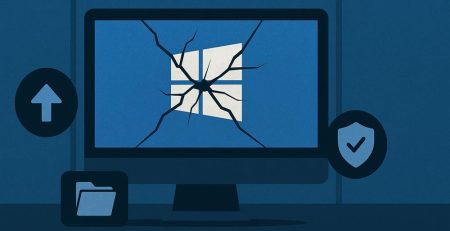What Are Cookies and Cache on My Computer?
If you’ve spent any amount of time using the internet, you’ve no doubt heard the terms cookies and cache. Unfortunately, it has nothing to do with tasty desserts and dollar bills.
Cookies and web caches are both forms of temporary storage stored on your browser, but what cookies store are completely different from what caches store.
What are Cookies?
Cookies are pieces of information saved about you that websites use to track your online behavior. The easiest way to think about a cookie is to think of it like your digital footprint. Cookies are text files sent by whatever site you are visiting and stored in your browser and the website’s server. It contains the date and time of the visit, username, browsing history, IP address, location, browser, device information, etc.
Websites use cookies to offer a personalized browsing experience. It’s important to note there are two types of cookies: first party and third party.
First-party cookies are created by the websites themselves and generally improve your experience on a website. They can remember your username, what items you place in your shopping cart and recommend other products from that same retailer. First-party cookies benefit both the user and the website.
Third-party cookies are created by those not affiliated with the website and often utilize tracking cookies to target you across different websites with ads for products you might like. That browsing information can be sold to a data broker, who will combine your information from other websites to create your consumer profile.
“It’s advisable to decline all third-party cookies, as accepting them gives the third party the right to sell your data.”
If you visit an online retail store, click on a product and leave that site, you may begin to see advertisements for that product or similar products on Facebook or other websites that feature ads. Third-party cookies do not benefit the user and only benefit the third party that utilizes them. In fact, websites must gain consent from users to utilize third-party cookies on a website.
When you visit a site for the first time, you’ll generally receive a message asking if you accept the cookies the site uses. Generally, if it’s first-party cookies from a trustworthy site that is encrypted and you aren’t sharing personal information like a social security number or banking information, you can accept cookies without worry. It’s advisable to decline all third-party cookies, as accepting them gives the third party the right to sell your data.
However, some sites require you to accept all cookies to view their pages or save login information.
In addition to first- and third-party cookies, some cookies expire differently.
Session cookies generally expire when a browser is closed and can be used by retailer sites to remember the items in your shopping cart. You can move from page to page on a retailer’s site while your items remain in the cart. However, if you close the browser or log out, the items in the cart will disappear.
Persistent cookies will exist even after you close your browser and can be deleted manually in your browser’s settings. Persistent cookies will save the settings you configure on a site you visit, such as your preferred language. They also are used to collect user information like browsing habits.
What are Caches?
Caches store data (HTML pages, images, audio, video, etc.) from the website you are visiting on your browser to improve the user experience.
You may notice the first time you visit a website, it takes a while to load. The next time you visit that site, it will load much quicker, as your browser already downloaded the files needed to view the website. Storing this data reduces bandwidth usage, server load and perceived lag.
Unlike session cookies, caches never expire. You will have to manually delete them using your browser’s settings. If a website was updated since your last visit, sometimes it helps to clear your cache to ensure you see the most updated version of the website.
What are the Differences Between Cookies and Cache?
Now that you know what cookies and cache are, here are the main differences.
| COOKIES | CACHE |
|---|---|
| Stores information about your time on website. | Stores website data. |
| Stores your IP address, device, browser, location. | Stores website’s HTML pages, images, videos, audio. |
| Contents are stored on website server and your browser. | Contents are stored in your browser. |
| Some expire automatically. | Must be cleared manually. |
| Takes up very little space. | Takes up a lot of space. |
| Saves personalization choices. | Saves time it takes to load a webpage. |
Hire IT Services in West Michigan
Contact Hungerford Technologies to see how we can help keep your business running smoothly while increasing productivity, security and profitability.











